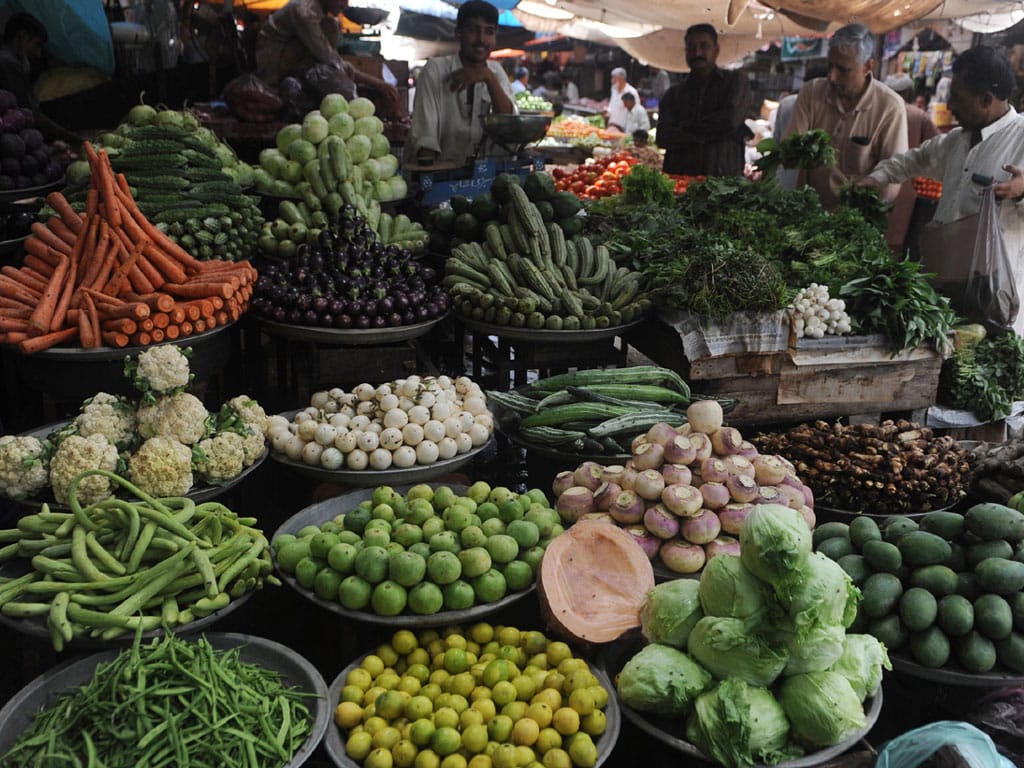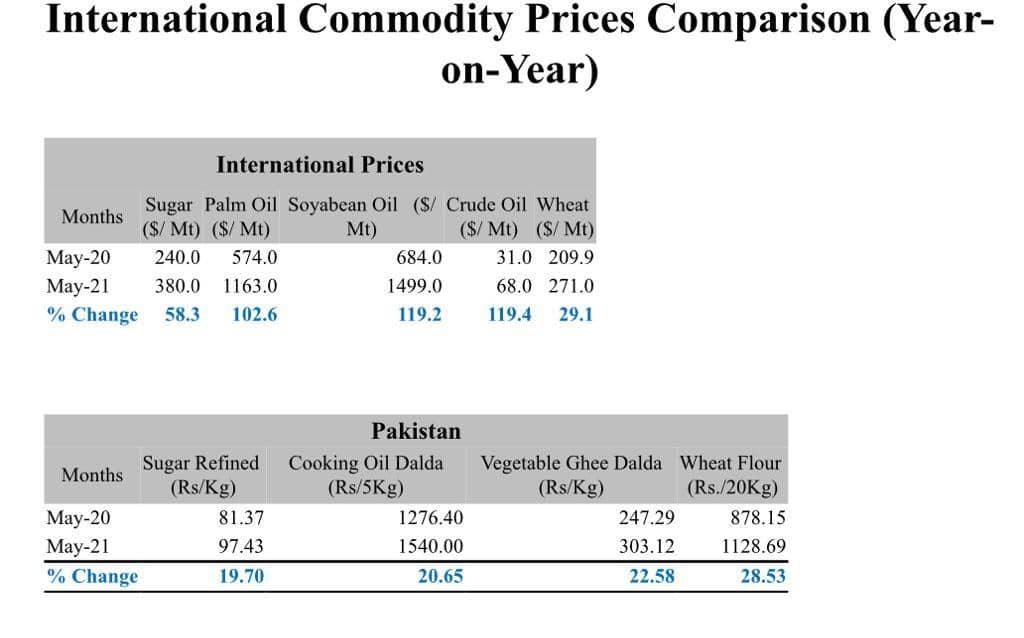The Federal Minister for Finance and Revenue, Shaukat Tarin, presided over the meeting of the National Price Monitoring Committee (NPMC) held at the Finance Division.
The NPMC reviewed the price trends of essential commodities, and of wheat flour, chicken, eggs, sugar, pulses, and edible oil in particular, during the week under review.
While briefing the NPMC about the weekly SPI, the Secretary of the Finance Division highlighted that there has been a continuous decline in the weekly SPI over the last two consecutive weeks, which is a positive sign of ease in inflationary pressures.
ALSO READ
NEC Approves Macroeconomic Framework for Annual Plan 2021-22
The weekly SPI had decreased to 0.61 percent on 3 June 2021 and to 0.63 percent during the preceding week. The consolidated and coordinated efforts of the Federal and Provincial Governments, and the concerned departments have yielded consistent results.
The committee was further briefed that a declining trend in food inflation is being observed in the midst of tremendous price hikes of international commodities during the ongoing pandemic, and particularly in its third wave.
The Minister for Finance was informed that according to the comparison of the prices of the international commodities published by the World Bank, the international price of sugar has increased by 58.3 percent (Year-on-Year), and had escalated to 5.6 percent during the last month (April 2021-May 2021). Similarly, the international price of soyabean oil has increased to a whopping 119.20 percent in a Year-on-Year comparison, whereas it had increased by 23.5 percent during the last month (April-May 2021). The pandemic-induced crises have wreaked havoc upon the international supply chain scenario and fuelled food inflation all over the world.
Furthermore, the international price trends of palm oil indicate an increase of 102.6 percent (Year-on-Year) and 7.9 percent during the last month.
Going by these international trends, the domestic price hike was unavoidable as Pakistan is the net importer of staple food commodities like wheat, sugar, edible oil, pulses, etc. During these testing times, the government has taken all the possible measures to provide maximum relief to the masses during the pandemic-induced global food inflation crisis.
While reviewing the situation, Minister Tarin stated that inflation and COVID-19 have been the two main concerns for the global markets, particularly during the second quarter of 2021. The ongoing pandemic has forced the global economy into a state of complete/partial lockdowns; but with the wider dissemination of vaccines, the situation is likely to improve, and will eventually ease the inflationary pressures towards the end of the year worldwide. He added that it is necessary to take into account a holistic picture vis-vis the price hikes at international and regional levels.
While taking stock of the daily releases of wheat by the Provincial Governments, Minister Tarin strictly directed them to continue with the daily release of subsidized wheat and to ensure its availability to the general public throughout the country at affordable prices in compliance with the directives of the Prime Minister.
While reviewing the prices of poultry, a significant decline in the national average of chicken prices has been observed, which is around 16 percent, and could be attributed to the strict administrative measures taken by the provincial administrations. Minister Tarin lauded the corrective measures taken, and reiterated the government’s firm commitment to ensuring the smooth supply of poultry at fair prices for consumers. He affirmed that no anti-competitive practices will be tolerated.
ALSO READ
PSX Submits Proposals for Federal Government’s Budget 2021-22
The PBS presented a detailed analysis of the price differential between the DC rates and the open market prices in 13 key commodities on the occasion. A significant price variation was observed in the prices of vegetables in some cities/districts across the country. The Minister for Finance directed the Provincial Secretaries and the ICT administration to track the situation on the ground and update the committee about the measures taken to minimize the price differential on the basis of the available data next week.
He also called for workout modalities to maintain strategic reserves of sugar and wheat to ensure their smooth supplies at affordable prices during the upcoming financial year. Additionally, he gave a directive for the initiation of an international procurement drive for wheat and sugar through public, private, and G2G arrangements.
The government will import up to four million metric tons of wheat from July 2021 onwards to build a strategic reserve of wheat. Similarly, he called for the Ministry of Industries and Production, in consultation with the Ministry of Commerce and the Provincial Governments, to present a firmed-up estimate for the import of sugar before the next meeting of the NPMC.
In his concluding remarks, Minister Tarin stressed that the government is fully cognizant of its responsibility regarding the provision of essential items at affordable prices across the board. Mindful that Pakistan is a net importer of food, the government has taken all-out measures to provide essential items through a network of Sahulat/Saasta Baazars, hefty subsidies through the chain of Utility Stores outlets under the Ramadan Package, and is taking strict administrative measures to keep the prices of basic items in check.
The meeting was attended by the Federal Minister for National Food Security and Research, Syed Fakhar Imam; the Federal Minister for Industries and Production, Makhdum Khusro Bakhtiyar; the SAPM on Finance and Revenue, Dr. Waqar Masood; the Secretary Finance Division; the Additional Secretary of the Ministry of National Food Security & Research; the Secretary Commerce; the Additional Secretary of the Ministry of Planning, Development & Special Initiatives; the Chairman of the Federal Board of Revenue; a Member of the Pakistan Bureau of Statistics (PBS); the Commissioner of Islamabad; senior representatives of the Provincial Governments; and other senior officers.






















